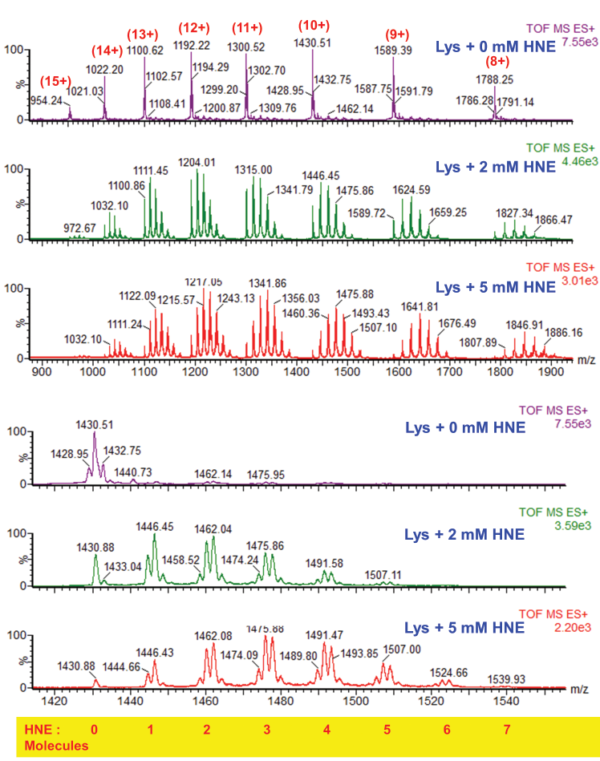
Author information
Roshanak Aslebagh1, Kelly L. Wormwood1, Devika Channaveerappa1, Emmalyn J. Dupree1, Izabela Sokolowska1, Armand G. Ngounou Wetie1, Sapan Patel1, Marius Mihasan1, 2, Alisa G. Woods1, Costel C. Darie1, *
Download
1Biochemistry & Proteomics Group, Department of Chemistry & Biomolecular Science, Clarkson University, 8 Clarkson Avenue, Potsdam, NY, 13699-5810, USA
2Department of Biology, Alexandru Ioan Cuza University, Bd. Carol I, No. 11, 700506 Iasi, Romania
2Department of Biology, Alexandru Ioan Cuza University, Bd. Carol I, No. 11, 700506 Iasi, Romania
Abstract
Great progress has been made in identification and characterization of proteins by mass spectrometry-based proteomics, but there is still a great challenge to identify and characterize post-translational modifications (PTMs) within proteins. This challenge is even greater when one discovers that not all protein and peptide modifications are important and the experimental-borne modifications not only complicate the data, but prevents us from focusing on and identifying the true natural and physiological relevant PTMs. Here, we demonstrate the power of mass spectrometry (MS) in identification and characterization of PTMs. We also describe the most important natural and experimental-borne PTMs, along with several strategies to identify PTMs, including specific examples. Finally, we discuss the strengths and weaknesses within this field.
(Received 16 March, 2017; accepted 17 April, 2017)
Keywords
post-translational modifications, mass spectrometry-based proteomics









